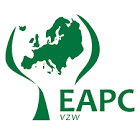Eilat Ashkelon Pipeline Co

Total capacity of implemented projects
50 - 250 MW
Countries of projects presence
1
Energy, Solar Energy, and Biomass Energy.
Eilat Ashkelon Pipeline Co (EAPC) is a leading Israeli company that has been at the forefront of the energy industry for over 50 years. The company was established in 1968 as a joint venture between Israel and Iran, with the aim of transporting crude oil from the Persian Gulf to Europe via the Red Sea and the Mediterranean. However, following the Iranian Revolution in 1979, the company's operations were severely impacted, and it had to shift its focus to other areas of the energy sector.
Today, EAPC is a diversified energy company that is involved in the development of renewable energy projects in Israel. The company has identified wind energy, solar energy, and biomass energy as key areas of growth, and has been investing heavily in these sectors over the past few years.
Wind Energy
EAPC has been actively developing wind energy projects in Israel since 2012. The company has identified the Negev desert in southern Israel as a prime location for wind farms, due to its high wind speeds and low population density. EAPC has already established several wind farms in the Negev, with a total capacity of over 100 MW.
One of EAPC's flagship wind energy projects is the 120 MW Wind Farm in Ramat Sirin, which was inaugurated in 2017. The wind farm comprises 40 wind turbines, each with a capacity of 3 MW. The project was developed in partnership with Siemens Gamesa, a leading wind turbine manufacturer, and is expected to generate enough electricity to power over 40,000 homes in Israel.
EAPC is also working on several other wind energy projects in Israel, including the 300 MW Wind Farm in the Golan Heights, which is expected to be one of the largest wind farms in the Middle East.
Solar Energy
In addition to wind energy, EAPC is also heavily involved in the development of solar energy projects in Israel. The company has identified the Negev desert as a prime location for solar farms, due to its abundant sunshine and vast open spaces.
EAPC has already established several solar farms in the Negev, with a total capacity of over 50 MW. One of the company's flagship solar energy projects is the 30 MW Solar Farm in Ashalim, which was inaugurated in 2018. The solar farm comprises over 150,000 photovoltaic panels, and is expected to generate enough electricity to power over 20,000 homes in Israel.
EAPC is also working on several other solar energy projects in Israel, including the 500 MW Solar Farm in the Negev, which is expected to be one of the largest solar farms in the world.
Biomass Energy
In addition to wind and solar energy, EAPC is also exploring the potential of biomass energy in Israel. Biomass energy involves the use of organic matter, such as wood chips, agricultural waste, and sewage sludge, to generate electricity.
EAPC has identified the potential of biomass energy in Israel, due to the country's large agricultural sector and the abundance of organic waste. The company is currently working on several biomass energy projects in Israel, including the 50 MW Biomass Power Plant in the Negev, which is expected to generate enough electricity to power over 50,000 homes in Israel.
EAPC's Commitment to Sustainability
EAPC is committed to promoting sustainability and reducing its carbon footprint. The company's renewable energy projects are a key part of its sustainability strategy, as they help to reduce Israel's dependence on fossil fuels and promote the use of clean, renewable energy sources.
In addition to its renewable energy projects, EAPC is also investing in energy efficiency measures and is exploring new technologies, such as energy storage and electric vehicles, to further reduce its environmental impact.
EAPC is also committed to promoting social responsibility and community development. The company works closely with local communities in the areas where it operates, and is involved in a range of social and environmental initiatives, such as supporting local schools and community centers, and promoting environmental education and awareness.
Conclusion
EAPC is a leading Israeli energy company that is at the forefront of the renewable energy sector in Israel. The company's focus on wind energy, solar energy, and biomass energy is helping to promote sustainability and reduce Israel's dependence on fossil fuels.
EAPC's commitment to sustainability and social responsibility is commendable, and the company's renewable energy projects are a key part of its efforts to promote a cleaner, more sustainable future for Israel and the world.